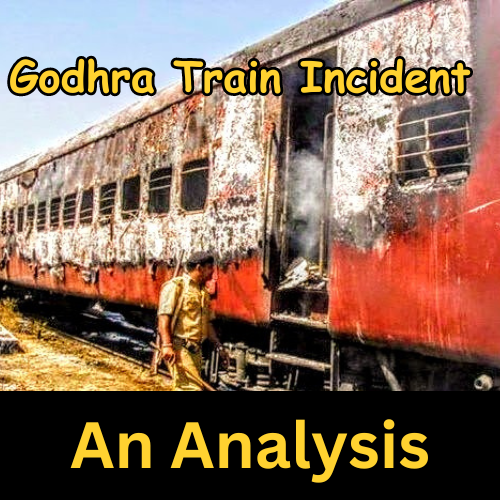Godhra Trailer Out Now
Get ready for a cinematic journey that will leave you questioning everything! The highly anticipated movie trailer for “Accident Or Conspiracy: GODHRA” drops on July 12, 2024. Inspired by the real and gripping events of the 2002 Godhra train incident, this film promises to unravel the mysteries and controversies that have captivated the nation for decades.
With a stellar cast and heart-stopping suspense, “Accident Or Conspiracy: GODHRA” dives deep into the untold stories, the intense investigations, and the lives forever changed. Don’t miss the chance to witness this powerful portrayal that will keep you on the edge of your seat. Mark your calendars and prepare for a thriller that challenges your perception of truth! Godhra Trailer Out Now !
What happened in Godhra in 2002?
The Godhra train incident on February 27, 2002, stands as one of the most contentious and tragic events in recent Indian history. On that fateful day, the Sabarmati Express, carrying Hindu pilgrims returning from Ayodhya, was attacked near Godhra, Gujarat. The train’s S6 coach was set on fire, resulting in the horrific deaths of 59 passengers, including women and children. This single event set off a chain reaction of violence and political upheaval that reverberated throughout the country.
Image Source – Here
Initial reports and investigations by the Gujarat police suggested that the fire was an act of arson perpetrated by a mob of local Muslims. This interpretation sparked widespread outrage among the Hindu community and fueled retaliatory violence across Gujarat. The riots that followed were devastating, leading to over 1,000 deaths, according to official figures, though some estimates put the number much higher. The majority of those killed were Muslims, and the riots resulted in significant destruction of property and displacement of people.
The Gujarat state government, led by then Chief Minister Narendra Modi, faced severe criticism for its handling of the situation. Allegations emerged that the government and local authorities either failed to act decisively to stop the violence or were complicit in allowing it to happen. Accusations of inadequate police response and delayed deployment of security forces were rampant. These claims led to national and international condemnation, and multiple investigations were launched to determine the truth of what happened and who was responsible.
Forensic and judicial inquiries into the Godhra incident itself produced conflicting conclusions. The Gujarat police’s initial investigation supported the theory of a planned attack by a Muslim mob, and this view was reinforced by a special investigation team (SIT) appointed by the Supreme Court of India. The SIT’s findings led to the conviction of 31 individuals in 2011, with 11 sentenced to death and 20 to life imprisonment. These convictions were based on witness testimonies, forensic evidence, and other forms of evidence gathered during the investigation.
However, alternative perspectives emerged from other investigations. The Concerned Citizens Tribunal, an independent body of retired judges and activists, suggested that the fire might have been accidental or at least not as premeditated as the official reports indicated. Their findings pointed to the possibility of an internal fire started by the passengers themselves, perhaps inadvertently. This alternative theory highlighted discrepancies in the official narrative and called for a more nuanced understanding of the incident.
The legal and political aftermath of the Godhra train incident was equally complex. Numerous human rights organizations and activists called for accountability and justice for the victims of the riots. The role of the state government and its officials came under intense scrutiny, with several petitions and legal challenges filed in courts. The Indian Supreme Court played a crucial role in overseeing the investigations and ensuring that the judicial process was followed rigorously.
The Godhra train incident and the subsequent riots had long-lasting impacts on India’s communal relations and political landscape. They highlighted deep-seated tensions between Hindu and Muslim communities and underscored the challenges of maintaining communal harmony in a diverse society.
Over the years, the Godhra incident has been the subject of numerous books, documentaries, and films, each offering different perspectives and interpretations. These works contribute to the ongoing dialogue about the incident and its repercussions, emphasizing the need for continued efforts towards justice, reconciliation, and understanding.
In summary, the Godhra train incident was a tragic event that led to widespread violence and significant loss of life. The complexities of the incident and the responses to it reflect the broader challenges of communal relations in India. It remains a powerful reminder of the need for vigilance against communal violence and the importance of striving for justice and harmony in a pluralistic society.
#Godhra Trailer Out Now
For more such Content : Click Here

